In the late 1970s, David Bowie found himself in a personal and professional quagmire. Despite his success, he was grappling with addiction and the pressures of fame. Seeking refuge and a new beginning, Bowie relocated to West Berlin. This move marked the beginning of one of the most innovative and influential periods in his career, known as the “Berlin Trilogy.” During this time, Bowie’s music and persona underwent a significant transformation, deeply influenced by Berlin’s unique cultural and artistic landscape. This section delves into how Berlin’s environment, history, and vibrant arts scene became the catalyst for Bowie’s reinvention and the creation of some of his most enduring work.
The Allure of Berlin
Berlin in the 1970s was a city of contrasts and contradictions. Divided by the Berlin Wall, it was a place where political tension was palpable, yet it also thrived as a cultural hotspot. For artists, musicians, and writers, West Berlin was an oasis of creativity, largely due to its isolated position that made it a kind of cultural laboratory. It was this environment that attracted David Bowie, who was seeking not only to escape his personal demons but also to find a new source of artistic inspiration.
Bowie’s move to Berlin was a deliberate attempt to strip away the trappings of fame and to reconnect with his creative essence. He shared an apartment with Iggy Pop in the district of Schöneberg, immersing himself in the city’s culture. Berlin’s stark, industrial landscape and the pervasive sense of isolation amidst geopolitical tension significantly impacted Bowie’s musical direction. It provided a stark contrast to the glam rock persona of Ziggy Stardust and the soul-infused sounds of his previous albums.

albums “The Idiot” and “Lust for Life”.
The Berlin Trilogy: A Musical Rebirth
The “Berlin Trilogy” consists of the albums “Low” (1977), “Heroes” (1977), and “Lodger” (1979). While only “Low” and “Heroes” were actually recorded in Berlin, all three albums were heavily influenced by the city’s atmosphere and Bowie’s experiences there. Working with producer Brian Eno and collaborator Tony Visconti, Bowie experimented with electronic and ambient music, integrating these elements with rock and pop to create a sound that was ahead of its time.
Low
“Low” marked a departure from Bowie’s previous work, featuring an avant-garde mix of electronic, instrumental tracks, and conventional songs with a minimalist approach. The album reflects Bowie’s mental state and his impressions of Berlin’s bleak yet inspiring landscape. Its experimental nature challenged the mainstream music scene and paved the way for the post-punk and New Wave movements.

Low’s cover artwork.
Heroes
“Heroes” continued in the vein of “Low” but with a more optimistic tone, inspired in part by the resilience of the Berliners living on either side of the Wall. The title track, “Heroes,” became one of Bowie’s most iconic songs, symbolizing the desire for love and connection in the face of adversity. It was a tribute to the human spirit’s endurance, inspired by a couple Bowie saw kissing near the Berlin Wall.

Lodger
“Lodger,” though less directly influenced by Berlin than its predecessors, explored themes of travel, cultural exploration, and the search for identity. It completed the trilogy by expanding on the experimental sounds and concepts introduced in the previous albums, further establishing Bowie’s reputation as a musical innovator.
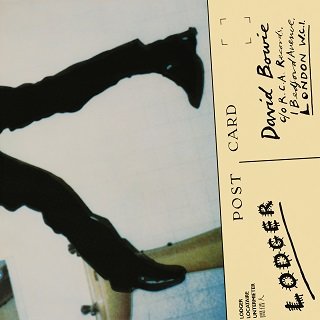
Berlin’s Cultural Impact
The impact of Berlin on Bowie was not limited to his music. The city’s avant-garde art scene, including the influence of German Expressionism, Dadaism, and the Bauhaus movement, deeply affected his aesthetic and artistic vision. Bowie’s time in Berlin was a period of intense personal and artistic exploration. He engaged with the city’s culture, visiting galleries, and immersing himself in the local music scene.
Berlin’s history, marked by war, division, and resilience, added depth and complexity to Bowie’s work, allowing him to explore themes of alienation, identity, and the human condition. The stark, sometimes surreal, landscape of Berlin provided a backdrop against which Bowie could project his ideas and experiment with new musical and visual forms.
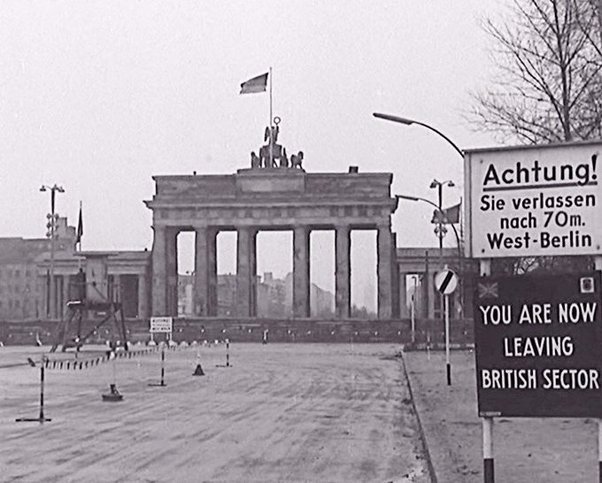
Collaborative Genius: Bowie, Eno, and Visconti
Brian Eno’s influence on the Berlin Trilogy cannot be overstated. His avant-garde approach to music and soundscapes complemented Bowie’s vision and desire for experimentation. Eno introduced Bowie to a range of electronic instruments and innovative production techniques, including the use of synthesizers and the incorporation of ambient sounds into the music. This collaboration resulted in a sonic landscape that was both futuristic and deeply emotional, capturing the essence of Berlin’s atmosphere.
Tony Visconti’s role as producer and collaborator was equally crucial. His technical expertise and understanding of Bowie’s artistic goals allowed him to bridge the gap between Bowie’s and Eno’s experimental tendencies and the commercial music market. Visconti’s innovative use of recording techniques, such as the Eventide Harmonizer on “Low” to alter drum sounds, contributed to the distinctive sound of the albums. His ability to meld the diverse influences and ideas of Bowie and Eno into cohesive albums was a key factor in the success of the Berlin Trilogy.
The collaboration between Bowie, Eno, and Visconti in Berlin was a perfect storm of creativity and innovation. Their shared willingness to experiment and push the limits of contemporary music resulted in a trilogy of albums that were not only ahead of their time but also deeply reflective of the city’s influence.
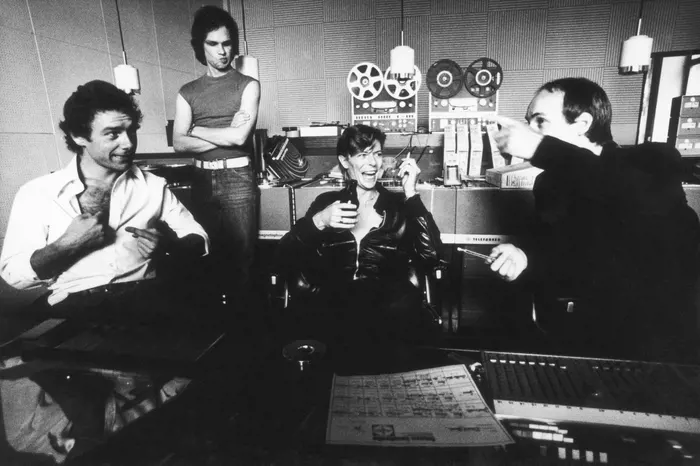
Photograph: Christian Simonpietri/Sygma/Corbis
The Influence of Krautrock and German Music
Bowie’s move to Berlin coincided with his growing interest in the German music scene, particularly the genre known as Krautrock. Bands like Kraftwerk, Neu!, and Tangerine Dream were exploring the possibilities of electronic music, creating minimalist, repetitive soundscapes that were radically different from the rock music of the time. Bowie was fascinated by their use of synthesizers and their experimental approach to music-making, seeing parallels with his own desire to break away from traditional rock and pop forms.
The impact of Krautrock on the Berlin Trilogy is evident in the minimalist structures, repetitive motifs, and ambient textures that characterize the albums. Songs like “Warszawa” and “Weeping Wall” from “Low” showcase the influence of Krautrock’s atmospheric and instrumental focus. Meanwhile, the rhythm-driven tracks of “Heroes” and “Lodger” reflect the motorik beat typical of the genre, providing a driving force behind the albums’ more experimental sounds.
Bowie’s engagement with German music and culture extended beyond Krautrock. He was also influenced by the electronic compositions of Karlheinz Stockhausen and the pioneering work of bands like Can. These influences helped Bowie and his collaborators to forge a sound that was at once reflective of Berlin’s avant-garde music scene and distinctly their own.
Experimentation and the Creation of a New Musical Language
The Berlin Trilogy stands as a testament to the power of experimentation in the creation of new musical forms. Bowie, Eno, and Visconti’s willingness to explore uncharted territory resulted in a fusion of rock, electronic, ambient, and world music that challenged conventional genre boundaries. This experimentation was not just a technical exercise but a deeply emotional process, with the music capturing the sense of dislocation, introspection, and hope that defined Bowie’s time in Berlin.
The trilogy’s exploration of sound and texture created a new musical language that has influenced countless artists and genres, from post-punk and New Wave to electronic and ambient music. The albums’ legacy lies not only in their innovative sound but also in their embodiment of the spirit of Berlin: a city that, like Bowie, was constantly reinventing itself amidst chaos and creativity.
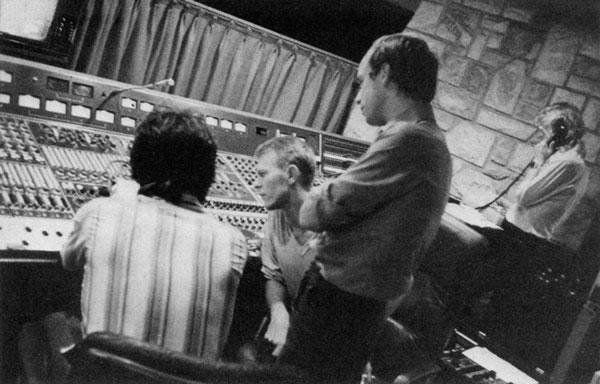
A Blueprint for Musical Innovation
The Berlin Trilogy’s influence extends far beyond the late 1970s; it has served as a blueprint for musical innovation for decades. The trilogy’s experimental approach to sound and production, blending electronic, ambient, and world music elements with rock, has inspired a wide range of artists across diverse genres. From the post-punk and New Wave movements of the late ’70s and early ’80s to contemporary electronic and experimental music, Bowie’s work in Berlin has been cited as a seminal influence by artists seeking to push the boundaries of their own musical expressions.
The trilogy’s impact is evident in the work of bands like Joy Division, Depeche Mode, and Radiohead, as well as in the ambient works of Brian Eno’s later career. Its fingerprints can be found in the DNA of industrial, techno, and ambient music, demonstrating the versatility and timelessness of the sounds Bowie, Eno, and Visconti explored. The albums’ experimental nature encouraged artists to explore the possibilities of the studio as an instrument in itself, a concept that has become a cornerstone of modern music production.
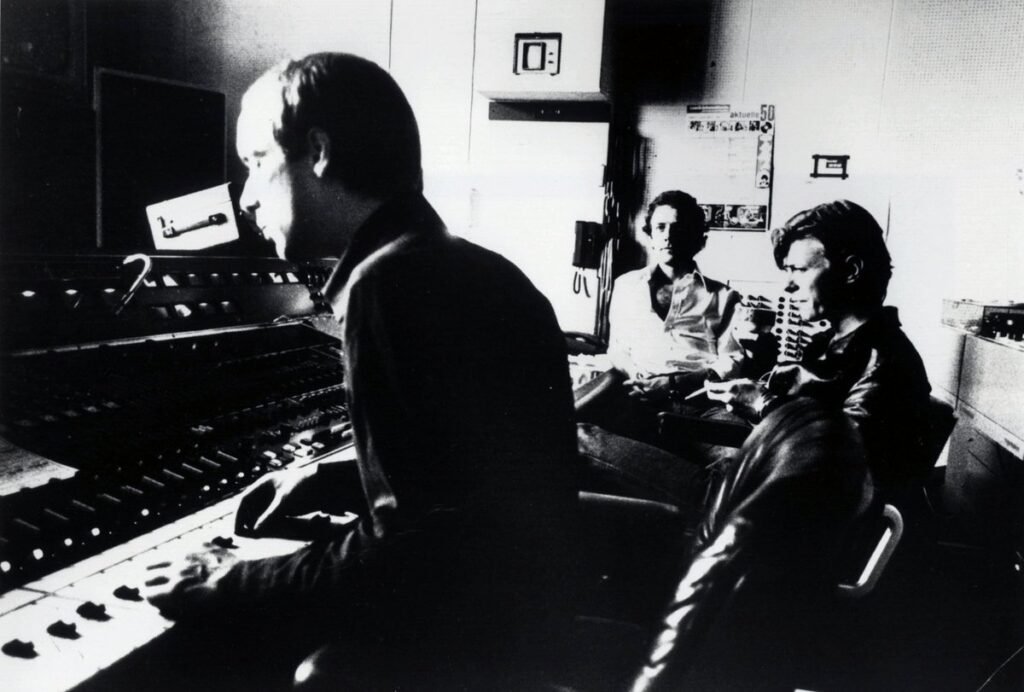
Bowie’s Artistic Renaissance
For Bowie himself, the Berlin Trilogy represented a period of artistic renaissance. It was a time of profound personal and creative growth, allowing him to reinvent his musical and visual persona. This period solidified Bowie’s reputation as a musical chameleon, capable of drastic stylistic shifts while maintaining a high level of artistry and integrity. The trilogy also played a crucial role in Bowie’s journey towards sobriety and helped him to navigate the challenges of fame, providing a creative outlet for his struggles and reflections.
The themes of alienation, introspection, and transformation that permeate the Berlin Trilogy resonated with listeners around the world, cementing Bowie’s status not just as a rock star but as a visionary artist. These albums showed that popular music could be a platform for complex emotional and intellectual exploration, setting a precedent for Bowie’s later work and for the ambitions of pop and rock music in general.
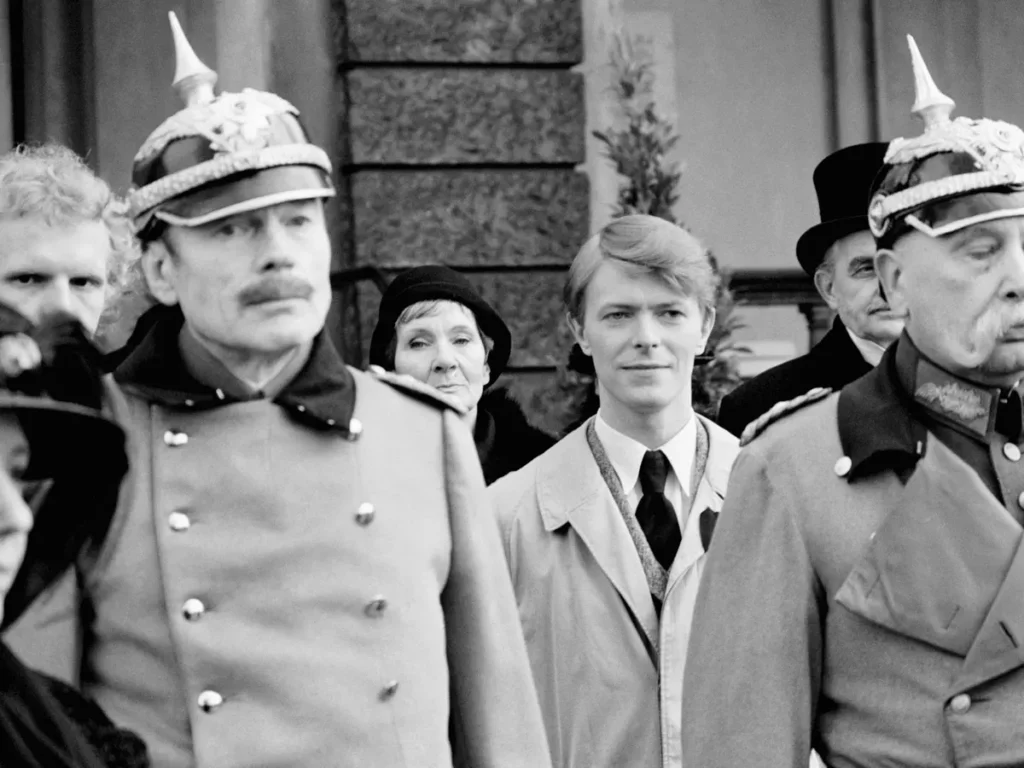
Photograph: Alain Dejean/Sygma/Corbis
Cultural Significance and Legacy
The Berlin Trilogy stands as a testament to the power of place in shaping artistic expression. Bowie’s immersion in Berlin’s cultural and political milieu during a pivotal time in the city’s history produced work that captured the zeitgeist in a way few other albums have. The trilogy serves as a historical document, reflecting the anxiety and hope of a city divided by the Cold War, and by extension, a world grappling with division and the search for identity.
Moreover, the trilogy’s enduring appeal lies in its ability to transcend its immediate context. The themes Bowie explored—alienation, the search for meaning, the possibility of transformation—are universal, allowing the music to continue to find relevance with new audiences. The Berlin Trilogy’s legacy is a reminder of music’s power to reflect and shape the human experience, bridging divides between cultures, generations, and genres.
Conclusion
David Bowie’s Berlin Trilogy is more than just a pivotal moment in one artist’s career; it is a landmark in the landscape of 20th-century music. Its legacy is felt not only in the specific genres it influenced but also in its broader impact on how artists think about the possibilities of sound, production, and thematic exploration in music. As we look back on Bowie’s time in Berlin, it is clear that the trilogy was not just a product of its time but a forward-looking collection of work that continues to inspire and challenge artists and listeners alike. Through the Berlin Trilogy, Bowie achieved a rare feat—creating music that is both of its time and timeless, leaving a legacy that will continue to resonate for generations to come.
